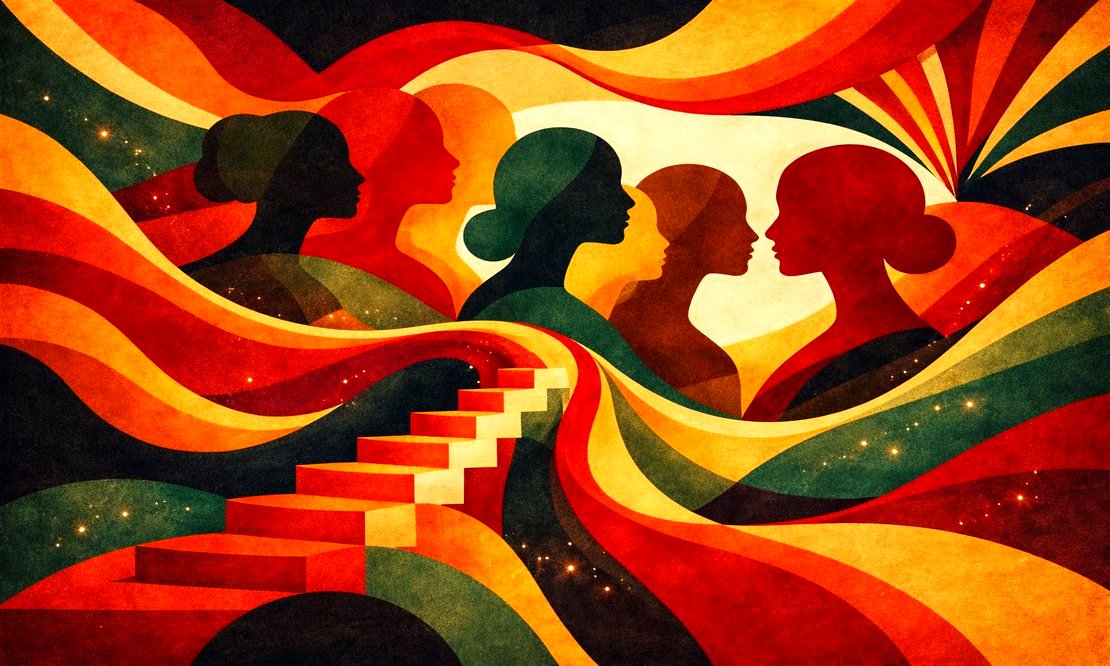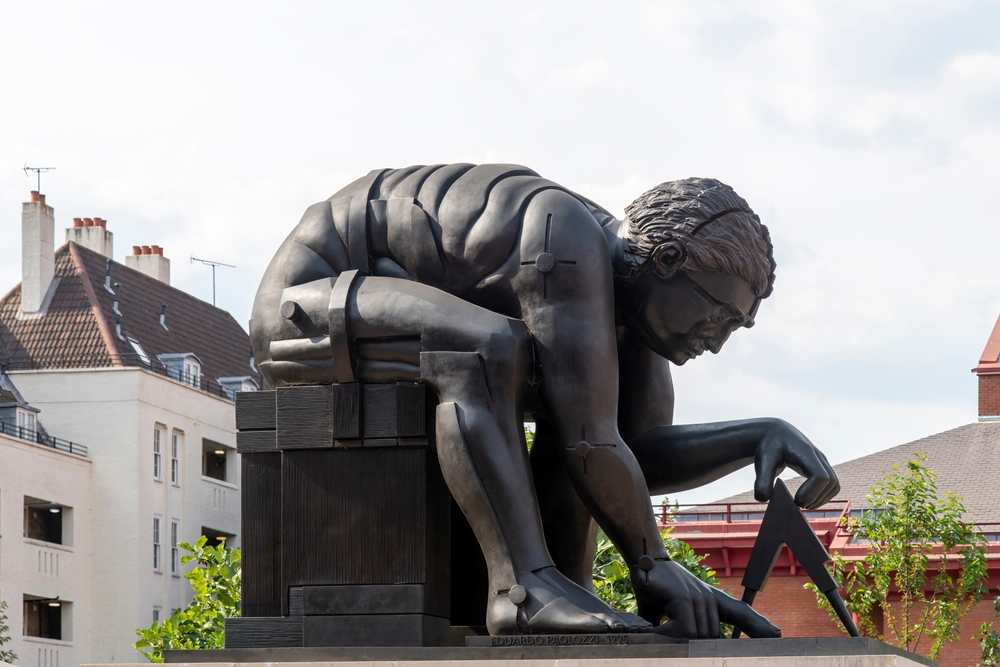 #Essays
#Essays
Why study the history of science?
The field helps us understand that knowledge is produced by real people who sometimes get things right and sometimes fail
 Statue of physicist Isaac Newton (1643–1727), by Scottish sculptor Eduardo Paolozzi (1924–2005), on display at the British Library in London | Image: Shutterstock
Statue of physicist Isaac Newton (1643–1727), by Scottish sculptor Eduardo Paolozzi (1924–2005), on display at the British Library in London | Image: Shutterstock
With each passing moment, science is building the road to the future, leaving as its legacy a remarkable past (good and bad). Sometimes, in newspapers, magazines, books, programs, and audiovisual productions, or even in the articles published on this platform, we get glimpses of that past.
It could be the name of a scientist, an important achievement, or a remarkable incident. It (the past) is there, like a beautiful photograph to be admired, like a record of what scientists were and what they did for society.
However, a photograph is nothing more than a static source. To understand the people featured in it, the place, and the context, we need a deeper investigation. In the case of science, this investigation is carried out by what we usually call “historians of science.”
Yes, there are people who dedicate themselves exclusively to understanding the history of science and scientists and to scrutinizing these photographs. They are generally professionals in the sciences who have converted to the humanities or historians with a background in science.
They also include many serious people from various fields who are dedicated to presenting a better view of science, scientists, and the development of scientific knowledge. Good historians of science are not just armchair detectives.
The history of science is a well-established field of research, which took its first steps at the beginning of the twentieth century, especially in the United States, where the first journals, university departments, and specialized associations were created at the time.
Today, it unites many researchers with a wide range of perspectives and influences. In Brazil, for example, they meet in the Brazilian Society for the History of Science (SBHC) and in the Association for the Philosophy and History of Science in the South Cone (AFHIC), which also includes other Latin American colleagues.
But, why study the History of Science? What does it offer us in the present? And in the future?
I’ll cite two examples, which may even shake up readers’ common-sense view of science and scientific work.
The first of these is British Isaac Newton (1643–1727). Known for his laws of motion, Newton is generally associated with being a science “genius.” However, since the 1940s and 1950s, his achievements have been more thoroughly contextualized by historians of science.
Newton has ceased to be regarded as the immaculate physicist and mathematician, and began to take on deeper contours, especially due to the influence of his (many) studies in alchemy and religion.
This was largely due to the fact that in 1936 an auction was held in London, UK, where several of Newton’s papers were sold. Loose papers that would certainly have been discarded today, but which were still stored in the homes of his heirs (Newton had no children, all his heirs were descendants of his niece, Catherine Barton).
The papers were mainly bought by two people: economist John Maynard (1883–1946) and collector Abraham Yahuda (1877–1951). The fate of their purchases differed, but in general, the writings revealed a different Newton from the one that we all know.
In place of the physicist, the astronomer, and the rigorous mathematician, we found a thinker eager to understand alchemy and to delve into the intricacies of the divine.
With this information in hand, historians of science have indicated that this knowledge greatly influenced Newton’s thinking about his own mechanics, astronomy, and optics. In other words, there was no separation between “physicist Newton” and “alchemist Newton,” and nor could there be, since they were one person.
Brazilian science
The second example involves Brazilian science. There is still a stereotyped view that Brazilian science has always been outdated, that nothing has been done in the country until recently, that major public policies belong to current times.
In part, this may even be true. But what historians of science have pointed out more recently is that, as in the previous example, we have a more complex situation.
Articles, books, master’s theses, and doctoral dissertations have shown, for example, that many initiatives for scientific development in Brazil failed because of poor policy decisions, the rise of repressive movements such as the military dictatorship (1964–1985), and the lack of human resources prepared to lead national science.
On the other hand, future initiatives, such as the creation, in 1951, of what would become the National Council for Scientific and Technological Development (CNPq) or scientific associations such as the Brazilian Society for the Advancement of Science (SBPC) in 1948, were fundamental to consolidating research in Brazil.
Studies have also pointed to the extensive scientific exchanges between Brazilians and foreigners, many of whom were responsible for creating the most important national research centers (I won’t mention specific names so as not to do anyone an injustice by forgetting them).
The role of women in the process, so unjustly invisible, should also be mentioned, such as Elisa Frôta-Pessoa (1921–2018), Neusa Amato (1926–2015), Amélia Imperio Hamburger (1932–2011), and Sonja Ashauer (1923–1948). I have made a point of mentioning those whose careers I know best, even though I know I’ll forget someone important.
Although I am more familiar with the context of Brazilian physics, my original field of training, there is no shortage of examples of works in the history of science that highlight the contribution made by biologists, chemists, geographers, and mathematicians to the development of national science.
The fact is: the history of science has never been studied as much in Brazil as it is today. So, returning to the question at the beginning, how does the history of science contribute to our present and future?
The history of science helps us understand that scientific knowledge is produced by real people, who have expectations, ideologies, who get things right and who fail.
We can’t think of a universal scientific method, because science is multifaceted. Nor can we imagine that science is neutral. It isn’t, it never has been, and it never will be, because it is a human product and is therefore tied to our desires, fears, and ideas.
In this way, looking back at the past helps us understand why we are where we are today and what mistakes we can no longer afford to make.
For example, delegating the responsibility of thinking about science education to a science denier is certainly not a good idea, since their decisions will never be purely “technical.”
Likewise, the history of science shows us that not investing in technical and scientific improvements for the population is a decisive mistake in consolidating our political, economic, and cultural hegemony. There is no lack of examples in the history of our country.
It also helps us to understand our current situation and improve our choices and our critical thinking.
It is therefore essential that everyone involved in science knows a little about its history. A photo from the past can take on nuances that were never foreseen. The more we open our horizons, the better human beings will become. Historians of science can help us with this task.
Breno Arsioli Moura is a professor at the Center for Natural and Human Sciences at the Federal University of ABC (UFABC) and a researcher at the National Council for Scientific and Technological Development (CNPq) in the field of History. He is currently coordinator of the Graduate Program in the Teaching and History of Science and Mathematics (PEHCM) at UFABC.
The opinion articles do not necessarily reflect the views of Science Arena and Hospital Israelita Albert Einstein.
*
This article may be republished online under the CC-BY-NC-ND Creative Commons license.
The text must not be edited and the author(s) and source (Science Arena) must be credited.


